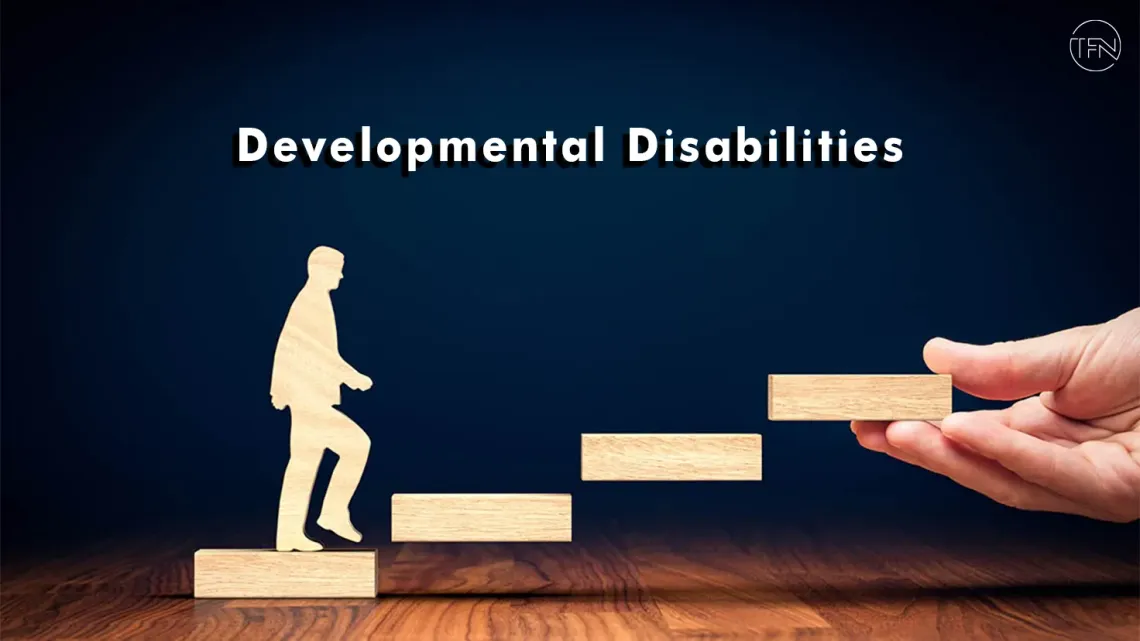Developmental disabilities are a group of conditions that affect a person's growth and development. They can vary drastically in terms of severity and can impact how individuals interact with the world around them. There is no one-size-fits-all approach to treating developmental disabilities, as each individual requires a unique set of interventions and treatments. To provide the best possible care for those affected, it is important to have a comprehensive understanding of the conditions and their associated symptoms. This article will provide an overview of developmental disabilities and their diagnosis, as well as some tips on how you can support someone who is living with one. Read on to learn more!
What is a developmental disability?
What is a developmental disability?
Developmental disabilities occur during the early stages of life, affecting a person's physical, intellectual, and social abilities. They can be caused by problems with brain development, such as cerebral palsy and autism. Some common developmental disabilities include Down syndrome and Fragile X syndrome.
Types of developmental disabilities
There are many types of developmental disabilities, and each person with a developmental disability experiences the condition uniquely. Some common types of developmental disabilities include:
- Attention-deficit/hyperactivity disorder (ADHD) is a type of developmental disability that affects a person's ability to focus and control their attention. It most commonly occurs in children between 6 and 12 but can also occur in adults. ADHD often leads to problems at school, such as trouble paying attention, making good grades, and staying organized.
- Autism is a complex neurodevelopmental disorder that typically begins in early childhood. People with autism experience difficulties with social interactions, communication, and repetitive behaviors. Babies and children may need specialized accommodations such as routines and schedules specific to their needs as they grow up. About 1 in 68 individuals have autism spectrum disorder (ASD).
Developmental disabilities and the brain
Several developmental disabilities affect the brain. These disabilities can cause problems with learning, communication, and other activities that require critical thinking and complex problem-solving skills. In some cases, these difficulties can persist throughout a person's lifetime.
Brain injuries can also lead to developmental disabilities. A brain injury can occur when the brain is hit by an object or injured in some other way. The severity of the brain injury can determine the extent of the disability.
There is no one answer as to why certain individuals develop developmental disabilities while others do not. However, scientists have identified some factors that may play a role. Some research suggests that genes may play a role in predisposing someone to develop a particular type of developmental disability. Other research has shown that exposure to toxins or environmental pollutants during prenatal development may increase the risk of developing a developmental disability.
Developmental disabilities and special needs
There are several different developmental disabilities, each with its own special needs. Some people with developmental disabilities have trouble speaking or understanding words; others may struggle to walk or control their movements. Some individuals with developmental disabilities may have problems with reading, writing, or math.
It's important to remember that everyone is different and that no two people with developmental disabilities will experience their disability similarly. Each person needs to be treated individually based on their needs.
Some special services for individuals with developmental disabilities include early intervention programs, daycare services, home healthcare services, and community-based support. It's essential to find out as much as possible about your specific developmental disability to get the best possible care for yourself.
Conclusion
Persons with developmental disabilities face unique challenges in the world around them and within themselves. This article provides an overview of some of these challenges and how you can help support a person with a developmental disability. There is no one-size-fits-all solution, but by being aware of some of the common issues that persons with developmental disabilities face, you can be supportive and helpful in ways that will make a big difference in their lives.
Not medical advice, seek professional help!

